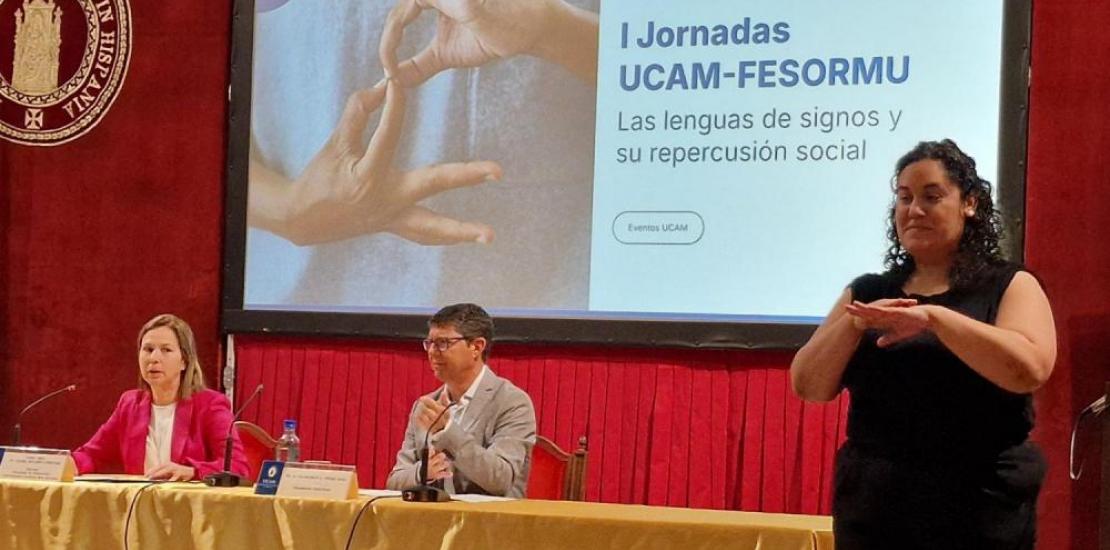UCAM and FESORMU call for greater visibility for sign language
The UCAM Faculty of Education has launched a Micro-Credential open to students from different programmes.
The Temple of the Los Jerónimos Monastery was the venue for the 1st UCAM-FESORMU Conference under the slogan ‘Sign languages and their social impact’, a meeting promoted by UCAM and the Federación de Personas Sordas de la Región de Murcia (FESORMU, Federation of Deaf People of the Region of Murcia) with the aim of reflecting on and proposing measures to advance the social and professional inclusion of deaf people, as well as in the use and teaching of Spanish Sign Language.
The conference featured a number of scientific and experiential presentations, with the participation of the Centro de Normalización Lingüística de la Lengua de Signos Española (Centre for the Standardisation of Spanish Sign Language) and the Confederación Estatal de Personas Sordas (State Confederation of Deaf People), the main national references in this field. The objectives addressed included raising awareness of the social reality of deaf people, eliminating communication barriers and providing specific training for professionals in key sectors such as education, health and communication.
The Dean of the UCAM Faculty of Education, Juana Mulero, stated that ‘the role of society and professionals in the full inclusion of deaf people involves understanding their means of communication: Spanish Sign Language’. In this regard, she emphasised that ‘it is time to focus on training, awareness and dissemination. All professionals who provide a service to society should have a minimum knowledge of sign language in order to be able to assist these people adequately’.
The Faculty of Education has launched a Micro-Credential open to students from different degree programmes such as Nursing, Communication and Occupational Therapy, with the aim of providing them with tools to deal with diversity in their future working environments.
Meanwhile, Francisco J. Pérez, President of FESORMU, highlighted the need to make this language visible in all areas of society: ‘Thanks to the collaboration with UCAM, we are going to give greater visibility to sign language and continue to advance its inclusion. Even though the law recognises this right, there is still a long way to go in terms of equal opportunities.’
FESORMU, which serves the entire Region of Murcia with eight specialised departments—ranging from psychosocial care to interpreting—has highlighted the key role that quality training and the elimination of barriers play in the autonomy and involvement of deaf people.
Around 30,000 people with some form of hearing impairment live in the Region of Murcia, of whom more than 3,000 are severely deaf. While the vast majority communicate through spoken language, a significant number of these people use sign language exclusively or in combination with spoken language. This reality highlights the urgent need to strengthen communication accessibility in all areas, as well as to guarantee the right to education, healthcare and adapted social services that allow deaf people to participate fully and effectively in Murcian society.




